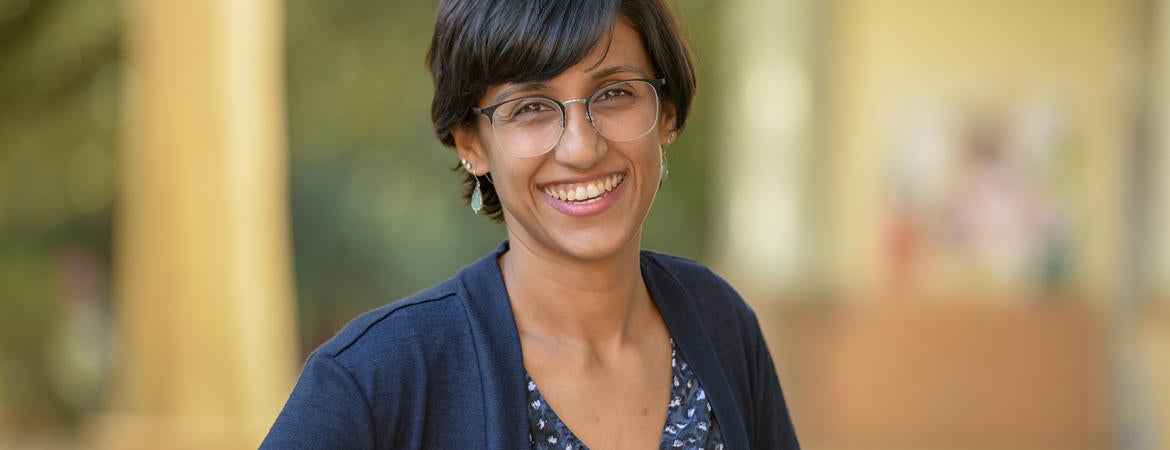
A team of researchers led by GSOE's Kinnari Atit has won state funding for a project that will investigate strategies for improving online postsecondary education in the science, technology, engineering, and mathematics, or STEM, disciplines.
The team’s project, “Supporting Student Learning About Molecular Structures From Simulations,” was chosen by the California Education Learning Lab in early February to receive a Seed Grant award of up to $100,000.
Atit, an assistant professor in UCR’s Graduate School of Education, studies the role of spatial thinking skills in STEM learning. Much of her research is interdisciplinary and involves working directly with STEM professionals in the field to devise and test new ways of bolstering students’ spatial skills.
The two-year Learning Lab project Atit is leading will take a close look at online STEM education at the postsecondary level, when STEM students’ spatial skills are especially key to their success. In particular, she and her team will evaluate techniques to help students better learn using online simulations to grasp two fundamental introductory chemistry concepts: molecular structures and their properties.
The researchers will do this by developing and testing a series of online formative assessments, which are traditionally used during the learning process to identify students’ weaknesses and fill in any gaps through targeted feedback from instructors.
Their hope is that the instructional tools can eventually be used in conjunction with online simulations to boost students’ understanding of fundamental chemistry concepts more generally — an understanding that depends heavily on the strength of students’ spatial skills.
Atit noted a major aim of the project is to push back against the dominant “culture of science” that tends to promote competition among students and a “survival of the fittest” mentality, often to the detriment of underrepresented minority students.
Instead, the goal is to support more personalized approaches to student learning — and better meet the needs of students from a variety of backgrounds and with diverse skill sets — through a more refined system of assessment and feedback.
“This project gives us a chance to change how STEM is traditionally taught in large undergraduate classrooms, which inadvertently isolates and discourages students who process information differently, or who could benefit from more time and feedback when trying to learn the challenging material, or who come from diverse backgrounds,” Atit said.
“With low retention rates in the physical sciences, especially for students from underrepresented minority backgrounds, and with the growing popularity of online learning at undergraduate institutions, it is critical we figure out how to make STEM learning in online settings more accessible to a broader range of students,” she added.
Housed at the Governor’s Office of Planning and Research, the Learning Lab was established in 2018 to increase learning outcomes and close equity and achievement gaps across California’s public higher education systems, particularly in the STEM disciplines. Its Seed Grants program provides initial funding for promising projects of curricular and pedagogical innovation that are still in early planning stages.
Joining Atit in the project are Matthew Casselman, an assistant professor of teaching in chemistry at UCR; Jack Eichler, an associate professor of teaching in chemistry at UCR; and Li Ye, an assistant professor of chemistry at California State University, Northridge. Their work is slated to begin this summer.
Reposted from Inside UCR.